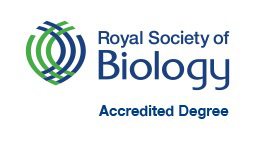Genetics (with integrated year in industry) Code C401 Attend an Open Day Attend an Open Day
Apply NowKey Facts
C401-
UCAS Tariff
120 - 104
-
Course duration
4 years
Available for September start 2026
Further details on entry requirements
Apply NowIf you are fascinated by genetics, and want to tackle important scientific issues like the genetic modification of organisms, or genetic prediction of human disease, then BSc Genetics will appeal to you. .
The Genetics degree at Aberystwyth University capitalises on the Department of Life Sciences’ long-established strengths in genetics research. We have facilities for DNA sequencing and bioimaging, and high-performance computing for bioinformatics. In addition, the Institute of Biological, Environmental & Rural Sciences (IBERS) is home to the National Plant Phenomics Centre.
Course content ranges from the fundamentals of evolution to the frontiers of modern genetics, including medical genomics and bioinformatics.
On completion of this degree, your career options could span from biomedical research to biotechnology to pharmaceutical industry and careers within Higher Education.
Course Overview
Modules September start - 2026
Please note: The modules listed below are those currently intended for delivery during the next academic year and may be subject to change. They are included here to give an indication of how the course is structured.
| Module Name | Module Code | Credit Value |
|---|---|---|
| Cell Biology * | BR17520 | 20 |
| Ecology and Conservation * | BR19320 | 20 |
| Genetics, Evolution and Diversity | BR17120 | 20 |
| Microbial and Plant Diversity * | BR19920 | 20 |
| Skills for Biologists * | BR16820 | 20 |
Options
| Module Name | Module Code | Credit Value |
|---|---|---|
| Biological chemistry | BR17320 | 20 |
| Comparative Animal Physiology | BR16720 | 20 |
| Disease Diagnosis and Control | BR15420 | 20 |
| Module Name | Module Code | Credit Value |
|---|---|---|
| Applied Molecular Biology and Bioinformatics | BR20620 | 20 |
| Cell and Cancer Biology | BR25920 | 20 |
| Chromosome Dynamics | BR21820 | 20 |
| Evolution and Molecular Systematics | BR21720 | 20 |
| Research Methods * | BR27520 | 20 |
Options
| Module Name | Module Code | Credit Value |
|---|---|---|
| Immunology | BR22220 | 20 |
| One Health Microbiology | BR26520 | 20 |
| Practical Skills for Biochemists | BR22920 | 20 |
| Practical and Professional Skills in Microbiology | BR24720 | 20 |
| Proteins and Enzymes | BR26620 | 20 |
| Module Name | Module Code | Credit Value |
|---|---|---|
| Integrated Year in Industry | BRS0060 | 60 |
| Integrated Year in Industry | BRS0160 | 60 |
| Module Name | Module Code | Credit Value |
|---|---|---|
| Bioinformatics and Functional Genomics | BR37120 | 20 |
| Biotechnology | BR35520 | 20 |
| Molecular Biology of Development | BR36020 | 20 |
| Research Project * | BR36440 | 40 |
Options
| Module Name | Module Code | Credit Value |
|---|---|---|
| Frontiers in Plant Science | BR35820 | 20 |
| Global Biodiversity Conservation | BR33420 | 20 |
| Molecular Pharmacology | BR36120 | 20 |
* Also available partially or entirely through the medium of Welsh
Careers
Teaching & Learning
Student Testimonials
Typical Entry Requirements
UCAS Tariff 120 - 104
A Levels BBB-BCC with B in Biology or Human Biology
GCSE requirements (minimum grade C/4):
English or Welsh, Mathematics and a Science subject
BTEC National Diploma:
DDD-DDM in a specified subject
International Baccalaureate:
30-28 with 5 points in Biology at Higher Level
European Baccalaureate:
75% - 65% overall with 7 in Biology
English Language Requirements:
See our Undergraduate English Language Requirements for this course. Pre-sessional English Programmes are also available for students who do not meet our English Language Requirements.
Country Specific Entry Requirements:
International students whose qualification is not listed on this page, can check our Country Specific Entry Requirements for further information.
The University welcomes undergraduate applications from students studying the Access to Higher Education Diploma or T-level qualifications, provided that relevant subject content and learning outcomes are met. We are not able to accept Access to Higher Education Diplomas or T-levels as a general qualification for every undergraduate degree course.
Our inclusive admissions policy values breadth as well as depth of study. Applicants are selected on their own individual merits and offers can vary. If you would like to check the eligibility of your qualifications before submitting an application, please contact the Undergraduate Admissions Office for advice and guidance.

